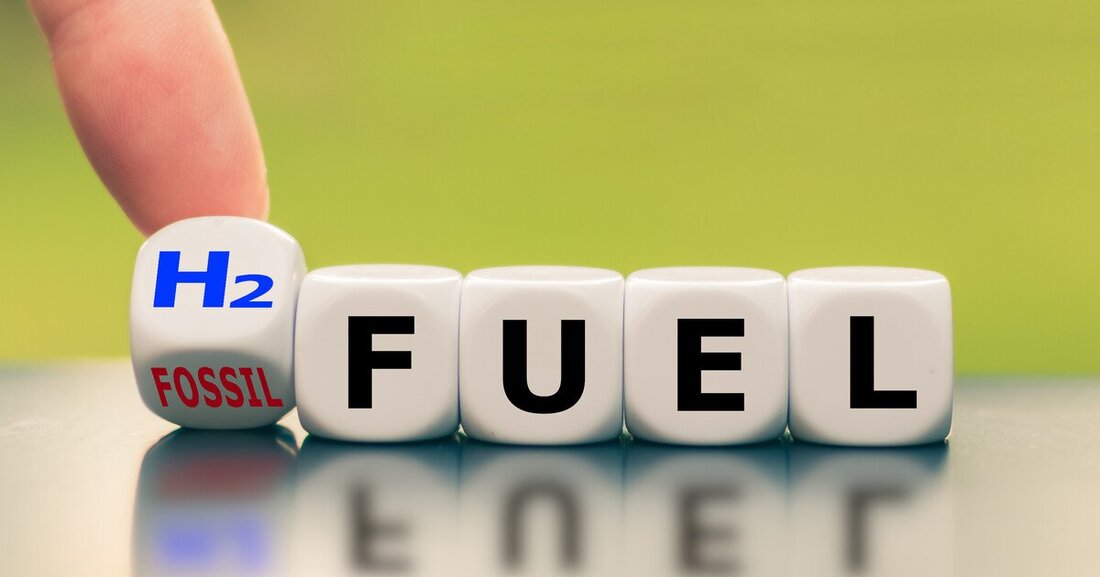Is hydrogen not even suitable for trucks?
A Fraunhofer analysis now even sees battery-electric systems as having an advantage over hydrogen in trucks.

Is hydrogen not even suitable for trucks?
E-mobility is not for everyone; many drivers rely on hydrogen as the fuel of the future. This is supported by a survey in Germany. When asked which drive should be urgently promoted, 39 percent of those surveyed were in favor of fuel cell technology and only 14 percent were in favor of battery-powered electric cars. The magazine Der Spiegel reported on this last year under the headline: “Hydrogen more popular than batteries among Germans”.
At least in the area of heavy trucks, the fuel cell seemed to be a promising drive technology of the future. This is especially true since the limited ranges and long charging times make the use of battery-electric drives in the transport industry seem impractical.
Now, however, there was a bitter setback for fans of hydrogen fuel cell technology. As several German media reports, the renowned Fraunhofer Institute for Systems and Innovation Research (ISI for short) has written a scientific article in the magazine “Nature Electronics” whose title says it all: “Hydrogen uniquely to play major role in road transport, even for heavy trucks”.
The authors easily come to the conclusion that battery-electric drive is superior to fuel cells in the vast majority of regions and commercial vehicle applications. They explicitly include long-distance heavy goods traffic. The greatest hopes for the introduction of fuel cells have so far rested on this.
The study by Fraunhofer ISI sees fully electric drives now also having an advantage in trucks due to the rapid development of battery and charging technology, and only niche applications for fuel cells. Conversely, fuel cell vehicles have lost their former advantages in terms of range and refueling time and would probably not be able to compete with battery counterparts, says the independent German research institute.
The main thing that works against the hydrogen fuel cell is the poor energy balance of this type of drive. Only a quarter of the initial energy is used for the drive, three quarters are lost during the conversion of electrical energy into hydrogen, during transport, storage and finally in the fuel cell itself. In addition, green hydrogen, i.e. hydrogen produced from renewable energy and therefore climate-neutral, will be in short supply in the long term, according to the experts. Added to this is the challenging infrastructure for storage and transport through to refueling the fuel.
Commercial vehicle giant Traton feels its strategy has been confirmed and responded promptly to the Fraunhofer ISI paper with its own release. Under the title "Fraunhofer analysis sees battery-electric trucks as having an advantage over hydrogen trucks," Catharina Modahl-Nilsson, Chief Technical Officer of the Traton Group, is quoted as saying: "We are pleased with the clarity of the analysis result, even if it does not surprise us. It once again confirms the Traton Group's strategy of relying on battery-electric drives for our commercial vehicles."
In truck transport, especially on long-haul routes, pure electric trucks would in most cases be the cheaper and more environmentally friendly solution. As Modahl-Nilsson also emphasizes, the hydrogen truck has a decisive disadvantage: "Only about a quarter of the output energy flows into the drive, three quarters are lost through conversion losses. With the electric truck the ratio is reversed."
The manager promptly says: “Battery-electric long-distance trucks are coming, the technology is there, the networks are on board.” What is now needed is further political support, above all in the form of government support for the development of a high-performance charging network for electric trucks. According to Modahl-Nilsson, incentives such as exceptions to the Sunday driving ban or enabling night logistics for operators of battery-electric trucks would also make sense. If the charging infrastructure is in place, 50 percent of Traton's new sales in long-distance transport could be battery-electric by 2030, it is said.
Competitor Daimler is more reserved: “Daimler Truck is consistently pursuing a dual strategy in the electrification of its portfolio: with batteries and hydrogen-based drives,” it says in a current release. The background is the many different applications and tasks of trucks. According to Daimler, hydrogen-based drives may very well be the better solution for flexible and demanding applications, especially in the important segment of heavy long-distance transport.
Andreas Gorbach, Member of the Board of Directors of Daimler Truck AG, says: "There will always be discussions that only deal with individual aspects of different alternative forms of drive, such as energy efficiency. This is actually higher for battery-electric than for hydrogen-based drive, but we forget to look at the big picture. In addition to efficiency, the availability of an appropriate infrastructure and the availability of sufficient green energy are crucial for a successful transition to zero-emission technologies."
At Daimler we are convinced that rapid and cost-optimal coverage of this energy requirement is only possible with both technologies. Gorbach assumes that green hydrogen will be traded at very attractive prices in the future. There would also be advantages in terms of costs and technical feasibility of the hydrogen infrastructure as well as greater range, flexibility and shorter refueling times for customers. Hydrogen trucks could be a sensible option for customers, especially in tough long-distance transport, especially in terms of total operating costs - even if the energy efficiency is lower. “When it comes to the question of the best transport solution, energy efficiency is an important, but far from sufficient, criterion,” explains Gorbach.

 Suche
Suche
 Mein Konto
Mein Konto